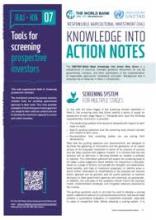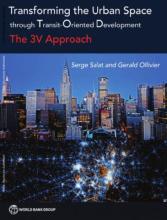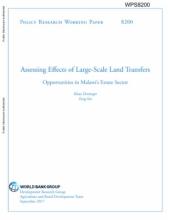Land Library
Welcome to the Land Portal Library. Explore our vast collection of open-access resources (over 74,000) including reports, journal articles, research papers, peer-reviewed publications, legal documents, videos and much more.
/ library resources
Showing items 10 through 18 of 4462.This note is part of an Action Notes series and provides guidance for governments on how to create an investment climate that is conducive to attracting high-quality, responsible investment in agriculture.
This note is part of an Action Notes series and provides guidance to governments on how to screen and select prospective investment projects to ensure they maximize the social, economic, and environmental benefits while minimizing the risks.
This note is part of an Action Notes series and provides examples of tools that government agencies can adapt to their national context and use to develop the technical capacity to screen and select investors.
Imagine a city that is more competitive, with higher-quality neighborhoods, lower infrastructure costs, and lower C02 emissions per unit of activity. This city has lower combined transportation and housing costs for its residents than other cities at similar levels of economic activity.
It is acknowledged that conflict over land is a major source of violence in various parts of Mindanao, particularly the prosed Bangsamoro region.
Land change in Kigali, Rwanda, is examined using Intensity Analysis, which measures the temporal stationarity of changes among categories. Maps for 1981, 2002 and 2014 were produced that show the land categories Built, Vegetated and Other, which is composed mainly of croplands and bare surfaces.
Durban is located within a global biodiversity hotspot, and still contains a wealth of biodiversity. Some of this is protected in nature reserves, but much of it is in private hands or in communal lands on the city’s periphery.
Since the early 1990s, the industrial timber plantation (Hutan Tanaman Industri - HTI) scheme has been intended to serve as a major source of timber to meet domestic and export demand.
This study uses data from the complete computerization of agricultural leases in Malawi, a georeferenced farm survey, and satellite imagery to document the opportunities and challenges of land-based investment in novel ways.








